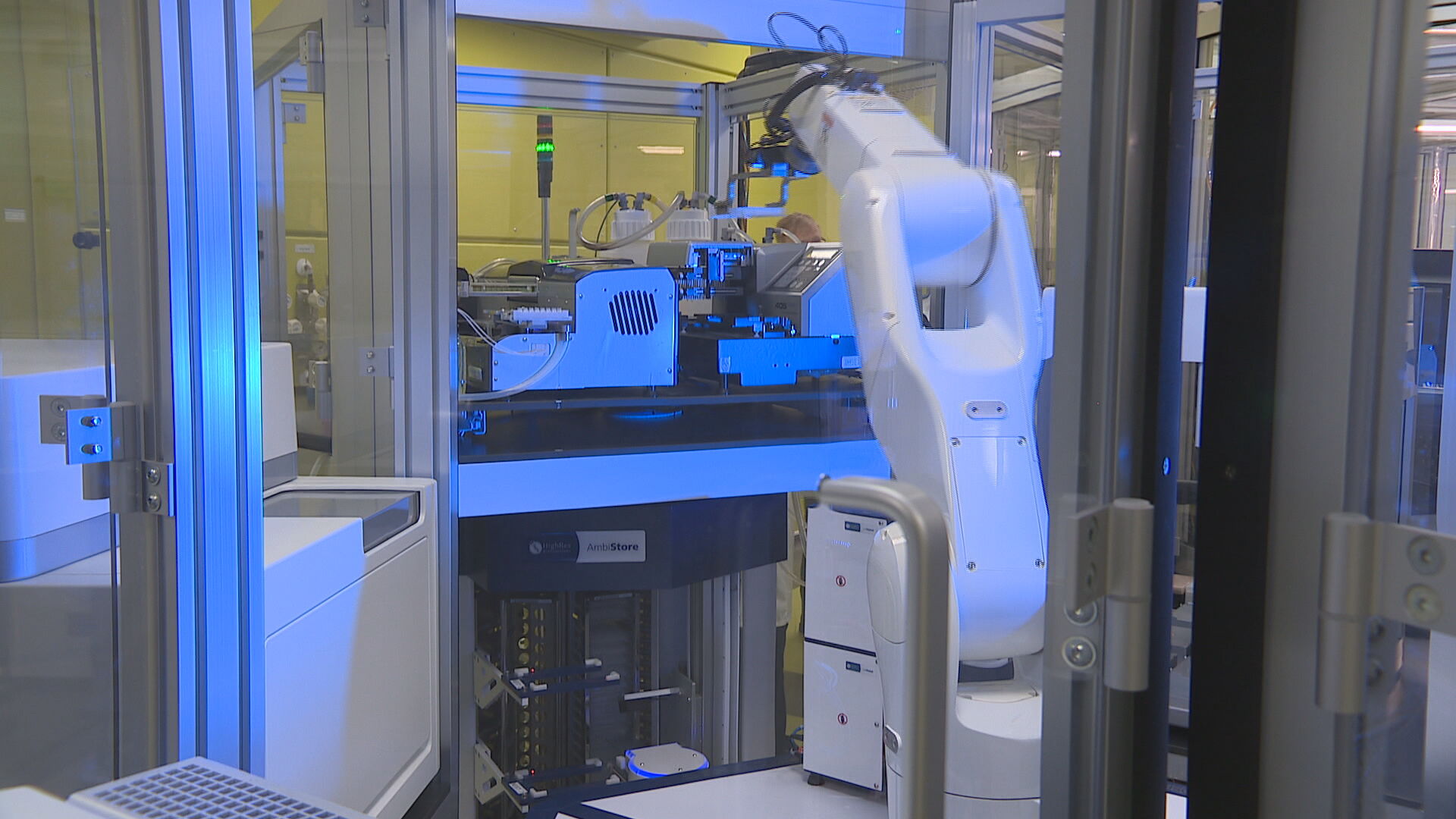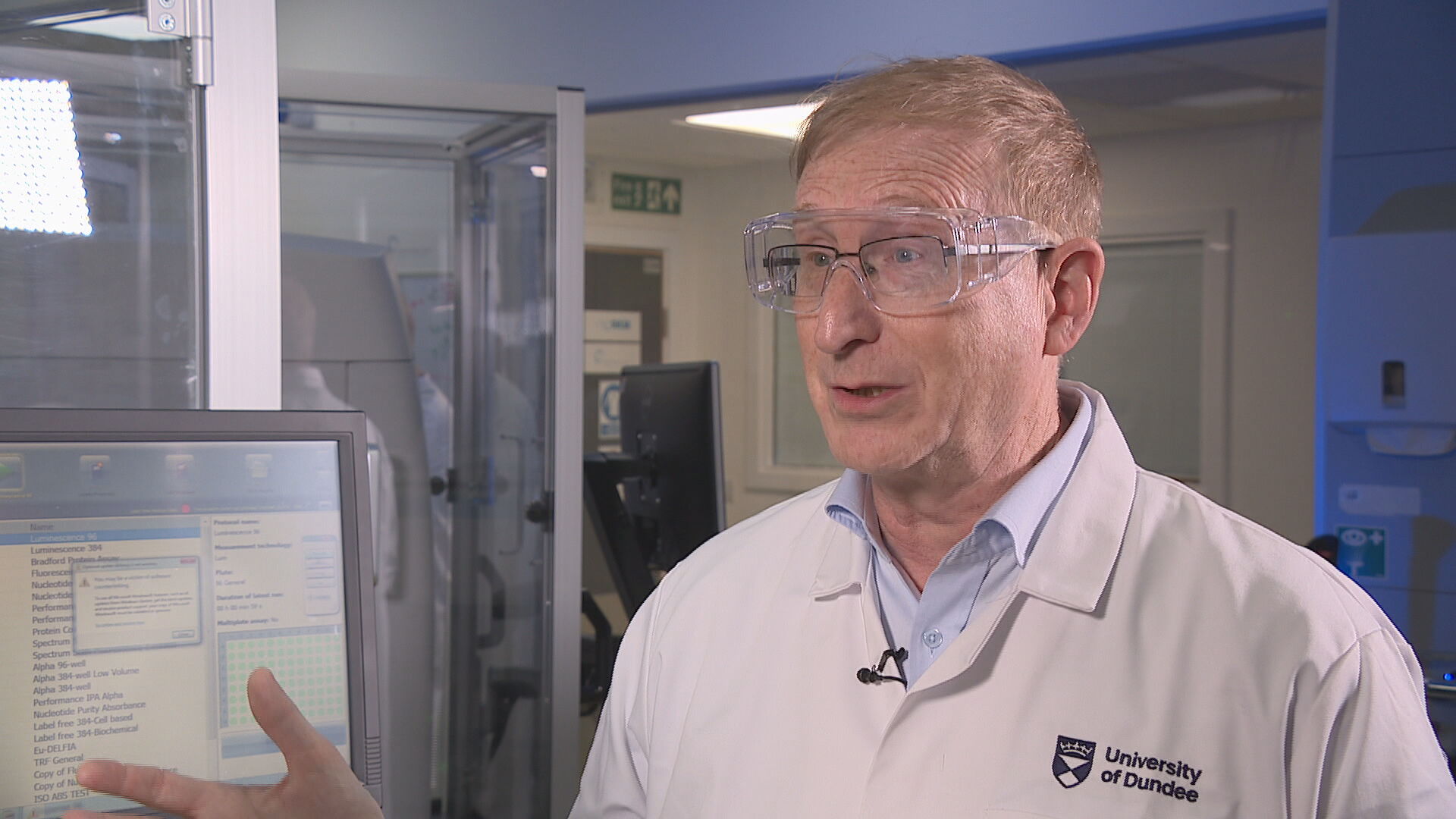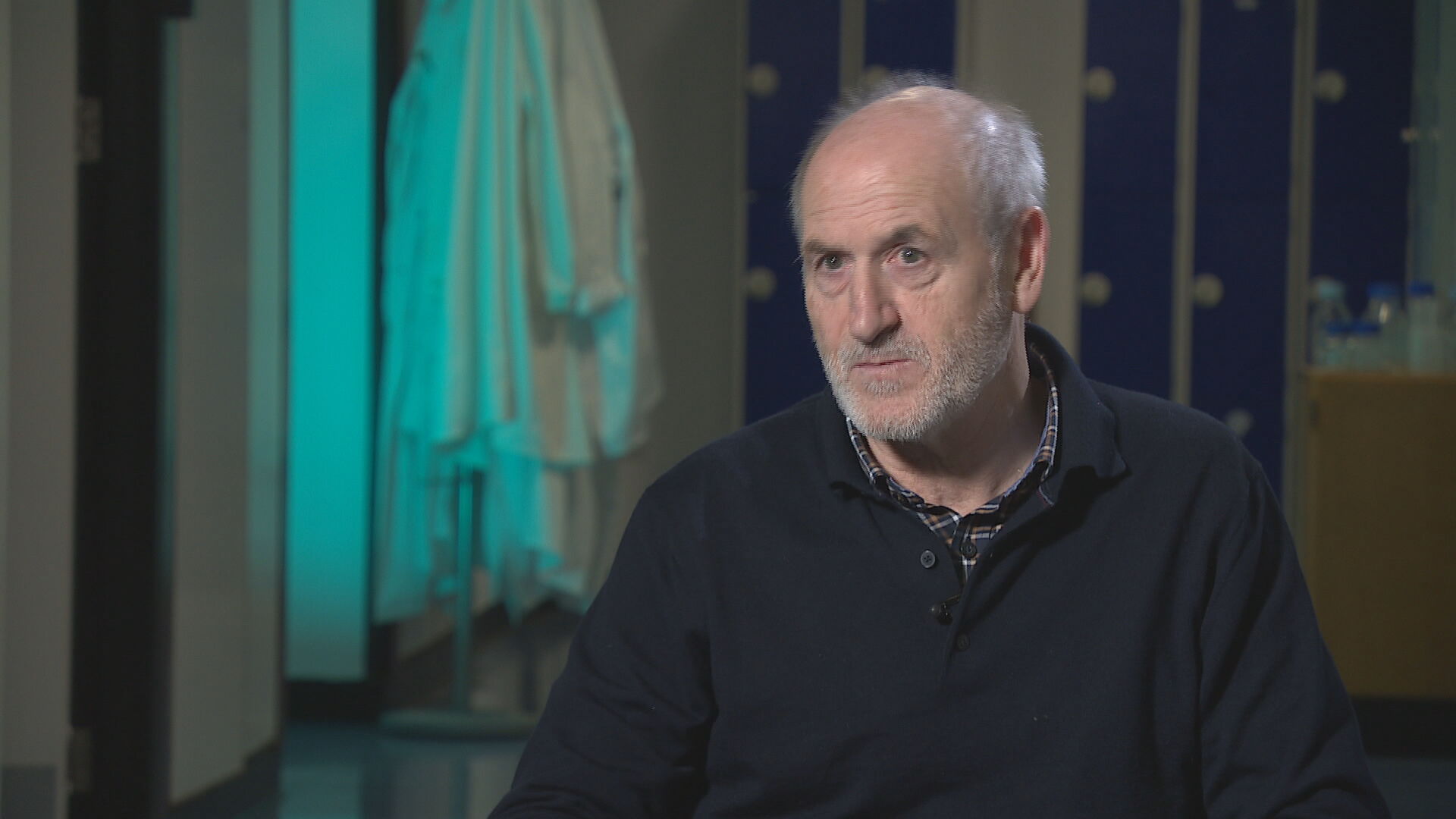For decades now, scientists across the globe have been trying to find ways for men to play a bigger role in the birth control space.
Oral contraceptives became available for married women in the UK in 1961 – and for single women in 1967 but all that’s available to men right now is condoms and vasectomies.
Male contraceptive gels and injections have been tested and trialled, however a pill has never hit the market.
Speaking to Scotland Tonight, Professor Chris Barratt from the University of Dundee said: “I think the stumbling blocks have been the fact that when you are trying to shut down the whole factory, it’s quite difficult to do that. Men produce 1,000 sperm in a heartbeat. So you’ve literally got to stop all of that production.
“Going the extra distance to get all of them stopped has been a big challenge for these products.”
The team are working on a pill that will mimic infertility – essentially making the cells dysfunctional so that they can’t swim as normal. They’ve been given more than £3m from the Bill and Melinda Gates Foundation to help fund the project.
Professor Jason Swedlow, who leads the phenotypic screening side of the research, said: “The groups that the Gates Foundation are funding are all over the world, but they’ve come to Dundee to develop a sperm-directed contraceptive. That gives you a sense of how unique and groundbreaking this project really is.”
The technology that is being used to test how certain chemicals react to sperm is unique to Dundee. They have robots that can test more than 1,000 compounds – a mixture of separate elements – every day. Previously, it took a month to screen 30.
 STV News
STV NewsProfessor Swedlow said: “We are looking for compounds that will interfere with the function of sperm in the human body. There’s 384 wells, small little plastic wells.
“We put sperm in these wells using automation and introduce individual compounds, and then through the bottom we can image the effects of those compounds.”
The team have been able to find compounds that can kill sperm, but they want to conduct further tests before starting a clinical trial.
 STV News
STV NewsProfessor Swedlow added: “We are proposing to give contraceptives to healthy people, so we have to come up with a drug that has a minimum and ideally no side effects. So think about that and in relation to, for example, cancer.
“Most people who have family members, or friends who have cancer, will know they go through chemotherapy and the side effects of chemotherapy can be quite significant. People get very, very sick.
“That obviously would be completely not acceptable in the case of what we’re talking about here. The demands of what we’re trying to do are, let’s just say, quite challenging, but that’s why we have these types of assays to look at all of those different effects.”
Human sperm is being used for the research, which Professor Swedlow says is very rare at such an early stage.
“We’re at the University of Dundee. We have a lot of students and so we have human sperm that are coming from students who are donors. Several days a week, we have sources of human sperm that we process and then introduce and use for these assays.”
 STV News
STV NewsProfessor Barratt says whatever they develop has to be low cost and accessible for people from all backgrounds.
“I’m always optimistic about these things,” he told Scotland Tonight. “I think the idea of getting compounds that could be used in humans for safety trials could happen within about five years, for sure.”
The Dundee group are also working on a non-hormonal pill or local administration for women.
“The compounds would affect the cell in the female reproductive tract,” said Professor Barratt. “So the idea is it would stop the sperm getting to the egg, which it needs to interact with to achieve fertilisation, or it would delay significantly so that the cells were non-functional.”
“It’s the same principle. You’re interrupting the function of the cells.”
But after decades of women being the ones who have to take the pill, the big question is: would men actually go out of their way to take an oral contraceptive if it’s not them who could fall pregnant?
Professor Barratt added: “We’re a bit biassed from years ago when we used to think of these things, so years ago, 20-30 years ago, there was a lot of data to say men were even in partnerships, were slightly uncomfortable about taking compounds and their role in contraception.
“I mean, thankfully, those days have passed now and people think differently. Their attitudes are different.
“There’s an overwhelming desire for a male to take part in contraceptive choices.”
Follow STV News on WhatsApp
Scan the QR code on your mobile device for all the latest news from around the country





























